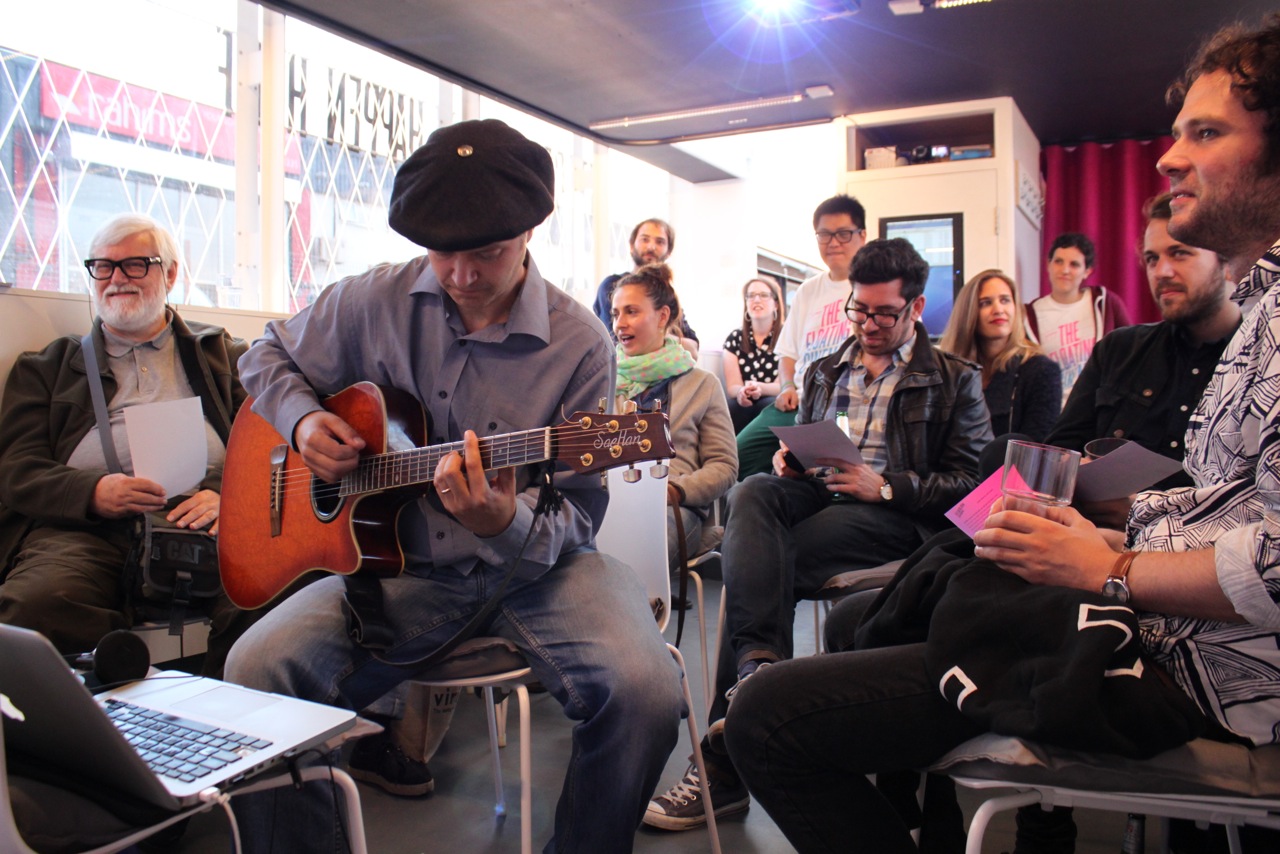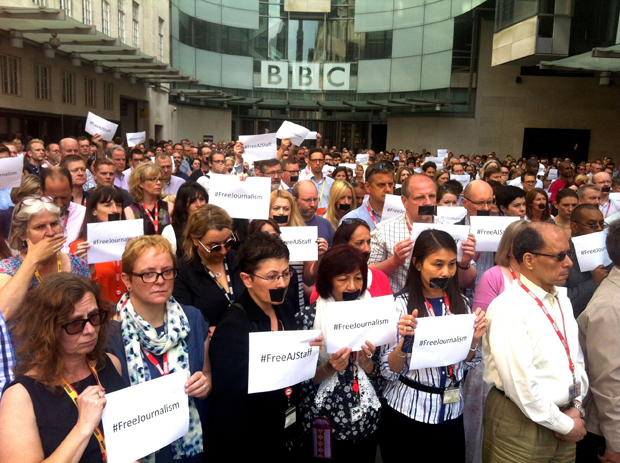30 Jul 2014 | Europe and Central Asia, European Union, News, United Kingdom

The British House of Lords has slammed the recent “right to be forgotten” ruling by the court of justice of the European Union, deeming it “unworkable” and “wrong in principle”.
The Lords’ Home Affairs, Health and Education EU Sub-Committee stated in a report on the ruling, published Wednesday, that: “It ignores the effect on smaller search engines which, unlike Google, may not have the resources to consider individually large numbers of requests for the deletion of links.”
The committee added that: “It is wrong in principle to leave to search engines the task of deciding many thousands of individual cases against criteria as vague as ‘particular reasons, such as the role played by the data subject in public life’. We emphasise again the likelihood that different search engines would come to different and conflicting conclusions on a request for deletion of links.”
The ruling from May this year forces search engines, like Google, to remove links to articles found to be outdated or irrelevant at the request of individuals, even if the information in them is true and factual and without the original source material being altered. Following this, Google introduced a removal form which received some 70,000 requests within two months.
The Lords committee recommends, among other things, that the “government should persevere in their stated intention of ensuring that the Regulation no longer includes any provision on the lines of the Commission’s ‘right to be forgotten'”.
Index on Censorship has repeatedly spoken out against the ruling, stating that it “violates the fundamental principles of freedom of expression“, is “a retrograde move that misunderstands the role and responsibility of search engines and the wider internet” and “a blunt instrument ruling that opens the door for widespread censorship and the whitewashing of the past”.
This article was posted on July 30, 2014 at indexoncensorship.org
25 Jul 2014 | Brazil, Events, United Kingdom

(Photo: Nina Pope for Contra Band)
Contra Band is a new commission, by Leah Lovett, which brings together musicians and audiences from Brazil and the UK for an experimental live performance of songs censored in both countries between 1964-1985. These dates mark the duration of the military dictatorship in Brazil
Contra Band Tours – Saturday 26th July (6-7pm & 8-9pm)
Audiences are invited on a floating journey, whilst we connect to a live link up with CASA 24, an artist led venue based in Rio De Janeiro. Musicians in both venues will attempt to learn, play and understand their counter parts censored songs.
Contra Band Talk – 3.30-4.30pm
Artist Leah Lovett will be joined by Julia Farrington and Melody Patry from Index on Censorship for a discussion examining issues of cultural censorship within Brazil, explored in Lovett’s new live performance Contra Band for The Floating Cinema. The talk will take place at Kings Place.
Lovett draws on her experience of collaborating with musicians both in London and Rio de Janeiro, and will share her research into cultural creative strategies which respond to political instability and creative invisibility during the Brazilian military regime. Index on Censorship will examine the current challenges facing online freedom of expression, exploring the country’s growing profile in global internet governance debates and the potential consequence of its domestic internet policies.
Index on Censorship is an international organisation that defends and promotes the rights to freedom of expression. The inspiration of poet Stephen Spender, Index was founded in 1972 to publish the untold stories of dissidents behind the Iron Curtain. Today this organisation fights for free speech, challenging censorship globally whenever and wherever it occurs.
Leah Lovett is an artist and writer currently researching a PhD at the Slade, UCL, with support from the AHRC. Her project investigates the spatial politics of Brazilian theatre director Augusto Boal’s invisible theatre as a means of opening up questions and possibilities for her own performance-based practice.
BOOKING DETAILS
Talk: BOOK HERE Free (booking essential) – 15.30 – 16.30 (taking place at Kings Place)
Tour Tickets: BOOK HERE £5.00; £3.00 conc. – timings 18.00 or 20.00 (on-board The Floating Cinema)
3 Jul 2014 | Europe and Central Asia, News, United Kingdom

(Image: Shutterstock)
I’ve occasionally thought it might be fun, even therapeutic, to have an enemies list. I would carry it in my pocket, a single, increasingly ragged B5 ruled sheet, on which I would scribble, with my specially purchased green Bic biro, the names of those who had taken against me, or to whom I had taken against; starting with the Ayatollah Khamenei (long story) and ending, well, never ending.
I could scrawl and scrawl, adding people and organisations: the wine waiter who mysteriously sneered “For you sir, perhaps a glass of Merlot” (I know that’s an insult, I just don’t know why that’s an insult), everyone who stands on the bottom deck of a bus when there are seats upstairs, the Communist Party of Vietnam, and so on, endlessly, ‘til my little scrap of paper was a grand mess of green ink, letters over letters over letters, upside down, vertical, horizontal, furious underlines, multiple exclamation marks, sometimes, just discernible, the word “NO” in capital letters.
It would be good to have the list at hand, to have it under control, I imagine. As long as I’ve got them all written down, and the list is on my person, I won’t be caught off guard. This would not be odd, you agree. It would be an entirely reasonable thing to do in a world where foes stalk us, waiting to mug us, or make us look like mugs.
For politicians, this sense of the entire world waiting for the moment you mess up is amplified, partly because it is a reflection of the truth. Opposition activists will pick up on every word you say, and the slightest slip will be turned into a hilarious/earth-shatteringly dull meme in mere minutes, with earnest young women imploring people to retweet whatever the hell it was that proves you hate nurses/the nuclear family/your party leader, and proves you’re not fit to do XYZ.
And then there’s the “feral beasts” of the press, as Tony Blair famously referred to journalists in 2007 (this was literally worn as a badge of pride by many: the New Statesman’s then political editor had “Feral Beast” badges made, which he handed out to every journalist he met), who you spend your life trying to please while deep down knowing they are willing you to cock up. You really, really can’t win.
Faced with all this, it’s not surprising that politicians and politicos are a little wary of the world. But there is a difference between wariness and paranoia, a difference demonstrated by the reaction to the Sunday Times’s report of a speech delivered recently by Labour’s Jon Cruddas to the left-wing group Compass. An attendee of the publicly advertised meeting passed a recording of Cruddas’s comments to the Sunday Times. The journalist then had the temerity to report on the speech! According to the Telegraph’s Stephen Bush, Cruddas’s next appearance, at the Fabian Society Summer Conference, was “bad tempered” and full of attacks on the “‘herberts’ and ‘muppets’ of Fleet Street who might be listening to his every word or statement in search of a headline”.
Meanwhile Neal Lawson, Compass chairman and Cruddas’s host, wrote a strange article for the Guardian, suggesting, somehow, that Cruddas’s comments were not in the public interest, and somewhat hyperbolically claiming: “The Sunday Times got its cheap splash, but in the process our political culture is diminished, maybe fatally.”
Lawson then really went for it, claiming: “What happens next? We either accept that the Murdoch empire — and maybe others — make toxic yet another level of public life and succeed in shrivelling our body politic still further. Or we make whatever stand we can.
Their goal is not just to destroy Labour or even any alternative to the individualistic, me-first politics of the past 30 years. They want to destroy the possibility of such an alternative. Invading the spaces in which such an alternative is discussed, such as the Compass event, is just a means to an end.”
All this at first reads as merely silly, but there are a few strands in it that are quite worrying. The first is the idea that a journalist reporting on a public meeting (Lawson’s justification for claiming it was “semi-private” was that attendees had to register and there was no press list) is fatally undermining democracy. There is an authoritarian undertone to this: journalists should report on what we allow them to report, not what is of interest. This is also reflected in Lawson’s comment about journalistic practices — “For the papers who do this it’s an easy, cheap hit: no research, no digging, just someone with a smartphone who is willing to sit through boring meetings on a Saturday afternoon” — somehow the story is not a good one because it was gained through day-to-day processes rather than via the Woodward-And-Bernstein routines that are seen as “proper” “investigative” journalism.
Secondly, there is the Murdochophobia which escalates an agenda to a conspiracy: The Sunday Times and Murdoch’s other papers are broadly conservative, it is true, but that’s a long way from having a goal of “destroying Labour” (a party Murdoch’s papers supported for a long time).
The problem with this paranoid mindset is that nobody takes responsibility for their own actions or even their own opinions. The question of whether there is a problem with Labour policy or not, becomes simply evil newspaper versus innocent, naive, poor little politician. It is self-pitying and self-defeating. Either have the debate, or don’t. But don’t complain when reporters report.
This article was posted on July 3, 2014 at indexoncensorship.org
24 Jun 2014 | Egypt, News, United Kingdom

(Photo: Casey Prottas for Index on Censorship)
The usually bustling entrance of the New Broadcasting House in London was still filled to the brim with people this morning, but for one minute they were completely silent.
BBC staff, joined by fellow journalists from around the world, stood in silent protest at 9:41 am, exactly 24 hours from the sentencing of three Al Jazeera journalists to prison in Egypt. Peter Greste and Mohamed Fahmy were each handed down seven-year sentences, while Baher Mohamed was given ten years.
The three journalists were found guilty on Monday for spreading false news by a court in Cairo. Ten other journalists, including Al Jazeera’s Sue Turton and Dominic Kane, and Rena Netjes, a correspondent for Dutch newspaper Parool, were also sentenced in absentia to ten years.
The silent protest was orchestrated in hopes of fighting against these unjust practices and to raise awareness of the dangers and censorship many international journalists face.
BBC Director of News, James Harding, stood up and addressed the group: “They are not just robbing three innocent men of their freedom, but intimidating journalists and inhibiting free speech.”
The protestors held signs that read #FreeJournalism and #FreeAJStaff, and covered their mouths with tape in order to illustrate their frustration with the trial verdict.
Sana Safi, a presenter for BBC Pashto TV News, said: “When I heard the verdict, I was in shock because I’m from Afghanistan and we have seen more media freedom in the last few years, and I wasn’t expecting anything like that from a country like Egypt.”
Their looks were determined and their heads were held high as cameras flashed and captured the intense moment. Cowardice was not an option.
Nasidi Yahaya, a social media producer from BBC Hausa, said: “The verdict was so unfair, these guys were just doing their job. Journalists should not be silenced like this.”
The journalists from the BBC, Al Jazeera, and other news organisations standing together in solidarity will also be sending a letter calling on the Egyptian president to intervene in the situation.
The wait for their freedom begins.
This article was posted on 24 June, 2014 at indexoncensorship.org




